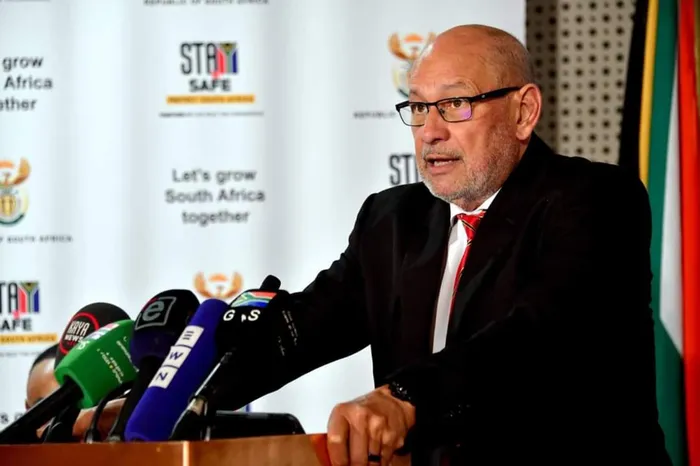NSFAS still to account for its budgets

Professor Lourens van Staden
The Portfolio Committee on Higher Education will turn to Parliament for special intervention in efforts for the National Student Financial Aid Scheme (NSFAS) to account for its 2021/2022 and 2022/2023 financial budgets.
According to committee chairperson Nompendulo Mkhatshwa, as the sixth Parliament’s administration ends, the committee remained in the dark in relation to how the entity spent the budgets.
“NSFAS 2021/2022 and 2022/2023 (budgets) still are outstanding. This is a great concern for us because we are still at a point where we don’t fully understand what the budgets of these financial years did.
“We have to try find a way through Parliament to have a meeting with NSFAS to at least resolve this,” she said.
“We cannot leave this term without addressing it. Committee meetings will cease to sit from next week, we’ll try and see as the committee where we can apply for some special intervention so that we try and close this issue. I’ll personally probe if we can be given time,” said Mkhatshwa.
She was speaking at the Northlink TVET College, Tygerberg Campus where the committee unveiled its comprehensive Legacy Report on the Department of Higher Education and Training (DHET).
The report focused on success and challenges at entities, like NSFAS, universities and TVET colleges.
The DHET budget has been on the increase, from R107.3 billion in 2019/2020 to R137.5bn for 2024/2025.
This was mainly due to NSFAS needing to fund students, however, it was noted that despite these increases there were many challenges in disbursing funds.
“We were very excited and open to what we were made to understand the direct payment system would achieve.
“The direct payment system was supposed to ensure the funds go through fewer hands, to ensure that we don’t have another incident where a student is given a lump sum of money by a service provider appointed by a university.
“The presentation of the direct payment sounded like a very good idea, but what then unfolded with this system (was) the service providers’ capacity to do the work. How long students were not sent allowances because of the system is really unfortunate.
“It is testament that this government has great ideas, policies, but when it comes to implementation we ruin things. This means we need to reflect on the sector – how do we take our great ideas to fruition and success so that the sector benefits from them,” said Mkhatshwa.
The committee urged that Professor Lourens van Staden’s acting position as NSFAS board chairperson not be allowed to drag on for longer than anticipated.
It recommended that the seventh Parliament lobbied the Standing Committee on Appropriations towards consideration of allocation of voted funds for the “missing middle” (students who fell out of the NSFAS net) and its sustainability, given that the current funding from the NSF and Setas could only cover 47% of the missing middle students for a four-year programme, including funding for postgraduate students.
The committee also recommended that it monitored developments around the court review of the independent assessor’s report on Unisa and monitor the implementation of the recommendations of the Ministerial Task Team Review.
It also asked for a follow up on recommendations to Blade Nzimande, the Minister of Higher Education, Science and Technology, to consider appointing an independent assessor to investigate governance challenges at UCT.
Cape Times
Related Topics: